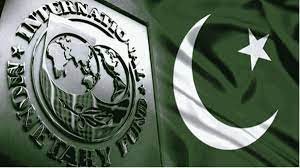Pakistan’s FY23–24 budget is criticised by the IMF, who labels it a “missed opportunity”
The IMF has called Pakistan’s budget for the fiscal year 2023–24 a “missed opportunity” and cited a number of concerns with it. However, the IMF has also said that it is willing to work with the cash-strapped nation to improve the budget before it is approved by Parliament.
In an effort to stave off an impending default caused by declining foreign reserves, the government presented a Rs 14.4 trillion budget to the National Assembly last week.
To Examine Low Carbon Steel Manufacturing Technology: Tata Steel and the German SMS Group
An Excellent Windows Alternative To Apple’s MacBook Air Is The Samsung Galaxy Book3 Pro
Zoho Stops Hiring For Engineering Positions, But Will Continue Strictly Hiring For Customer-Facing Positions
One day prior to its submission, Esther Perez Ruiz, the IMF’s resident representative for Pakistan, stated that before its board decides whether to release at least some of the USD 2.5 billion in pending disbursement under the 2019 Extended Fund Facility (EFF), which is scheduled to expire at the end of June, Pakistan must satisfy the Washington-based lender on three counts, including the budget for the upcoming fiscal year.
According to a statement he made late on Wednesday, Ruiz said that a new tax amnesty plan put forward by the government in the budget creates a “damaging precedent” and violates the program’s conditionality. The Fund did not identify the specific scheme in question in the statement.
The draught FY24 budget is also noted to have “missed an opportunity to broaden the tax base in a more progressive way, and the long list of new tax expenditures further reduces the fairness of the tax system and undercuts the resources needed for greater support for vulnerable BISP (Benazir Income Support Programme) recipients and development spending.”
Ruiz said that actions to relieve the liquidity strains on the energy sector might be combined with the overall budget approach, according to the article.
The lender only had time for one board meeting before the current programme came to an end, the IMF official had previously said.
According to Ruiz, the IMF “stands ready to work with the government in refining this budget before its passage” and that the IMF “remains engaged” in discussions about measures to ensure stability.
Pakistan was anticipating receiving around USD 1.2 billion from the IMF in October of last year as part of the EFF’s ninth review, despite reserves being at critical levels for the preceding several months. But over eight months later, that amount still hasn’t arrived, according to the Fund, who claims Pakistan can’t fulfil crucial requirements.
Pakistan’s attempts to get access to the previously agreed-upon USD 6.5 billion loan package are in a pickle since the country’s budget must please the international lender in order to guarantee the release of more bailout funds for the cash-strapped nation.
The ninth review of the programme, which has just a few weeks left before it expires, is still in limbo, and the tenth review, which was initially planned, is all but impossible, according to the report.
Without the fund’s active assistance, it is anticipated that Pakistan may be unable to meet its obligations for external finance.
Since many years ago, Pakistan’s economy has been in a fast slide, putting enormous pressure on the underprivileged masses via unbridled inflation and making it almost difficult for a large number of people to make ends meet.







